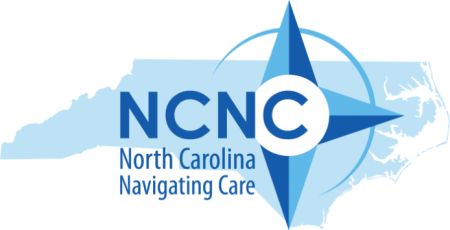
Advocacy and Engagement
Building skills in speaking up for ourselves and our children, making choices about how to live our lives.
You are your child’s best advocate, whether with family, friends, school, or medical professionals. It’s never too early to give your child opportunities to make choices for themselves, speak up for what they want, and give back to their community. Experiences now in advocacy and community involvement help prepare your young child to always be able to speak up for themselves and make choices about what they want in life.
What rights for services does my child/ren have and how can I speak up to get what they need?
How can I best advocate for my loved ones needs within the educational setting?
Department of Public Instruction: The Parent Rights Handbook summarizes the rights and responsibilities of parents in the special education process.
https://ec.ncpublicschools.gov/parent-resources/parents-rights-handbook
Exceptional Children’s Assistance Center (ECAC) – ECAC helps parents navigate the special education system, know their rights, and use their voice.
https://www.ecac-parentcenter.org/discover-ecac/
Communicating with your Child’s school: Strategies for communicating and negotiating on your child’s behalf.
http://www.ecac-parentcenter.org/wp-content/uploads/ECACResourceStepsToSuccess.pdf
You are your child’s best advocate.
http://www.ecac-parentcenter.org/wp-content/uploads/ECACResourceAllAboutAdvocates.pdf
IEP Toolkit – Explains the components, process, and what to do if you do not agree with an IEP decision.
https://www.autismsociety-nc.org/wp-content/uploads/IEP-Toolkit-2019.pdf
What if my child is denied an Individualized Education Program (Plan)?
https://www.understood.org/en/school-learning/your-childs-rights/if-losing-services/10-steps-to-take-if-your-child-is-denied-services
Exceptional Children’s Assistance Center (ECAC) helps parents navigate the special education system, know their rights, and use their voice. They also help parents who may have disputes about their child’s rights.
https://www.ecac-parentcenter.org/conflict-resolution/
North Carolina Department of Public Instruction-Exceptional Children Division- Dispute Resolution
https://ec.ncpublicschools.gov/parent-resources/dispute-resolution
How can I appeal if I feel that my loved one meets eligibility criteria for state or federally funded services and was denied?
Medicaid denial
https://www.oah.nc.gov/hearings-division/medicaid-recipient-appeals
https://ncgov.servicenowservices.com/sp_beneficiary?id=bnf_know_your_rights
Social Security denial
If the application is denied you will receive a written notice. If you want to appeal it, you must file a Request for Reconsideration within 60 days of the date of the denial notice, plus 5 days for mailing.
You can file by telephone at 1-800-772-1213, or online at:
https://www.ssa.gov/
Who can help me advocate for my child?
Disability Rights NC – this state agency helps persons in NC understand their rights and helps protect those rights
https://disabilityrightsnc.org/
Exceptional Children’s Assistance Center helps parents navigate the special education system, know their rights, and use their voice
https://www.ecac-parentcenter.org/
How can my child learn to speak up and make decisions?
How do I help my child learn how to speak up for themselves?
Regardless of their verbal ability there are things you can be doing now to prepare your loved one with the skills they will need to make their wants, needs, preferences and life choices heard.
https://www.churchillstl.org/learning-disability-resources/self-advocacy/
https://www.understood.org/pages/en/friends-feelings/empowering-your-child/self-advocacy/
What are some tools and strategies that I can use to help them know that their voice matters?
https://www.understood.org/en/friends-feelings/empowering-your-child/self-advocacy/the-importance-of-self-advocacy
When can my child participate in the IEP or their education process?
https://www.understood.org/en/school-learning/special-services/ieps/faqs-about-having-your-child-attend-iep-meetings
Are there ways I can help improve services for other families and people with disabilities? (opportunities for family leadership, peer mentorship, parent to parent)
Exceptional Children’s Assistance Center offers opportunities for families to participate[MOU1] in leadership activities and use their voice.
https://www.ecac-parentcenter.org/parent-leadership/
Family Support Network and their regional affiliates have a lot of support groups and training for families that would like to have parent leadership opportunities
https://fsnnc.org/supports
Autism Society of NC: Find a “learn how to advocate” tip sheet and an Advocacy 101 toolkit
https://www.autismsociety-nc.org/make-voice-heard/
Family Voices website
https://familyvoices.org/
FRIENDS is a program of Families and Communities Rising, Inc – Learn how to tell your story
https://friendsnrc.org/parent-leadership/parent-stories
How you can help
Benefits of family leadership and collaboration in program development:
Providing family perspectives – personal, lived experience is just as valuable as those with professional, work experience
Bringing a sense of reality to ideas and tasks
Improving the quality of services and supports
Ensuring that programs and policies meet the needs of families
Allows many families to “pay it forward” so other families can learn from or benefit from their experiences
Family Leadership is an attitude and a behavior, not a position
Reflect trust and respect for all experiences and opinions
Opportunities for leadership and collaboration:
Participate in local support groups, sharing personal experience, learning about community resources
Sharing resources with other families
Participate in online trainings to further personal learning
Within your community – are there planning committees that would welcome and benefit from the family voice [library, parks and recreation, local support groups, PTA)
Preparing an “elevator speech” to promote your area of interest or concern
An elevator speech focuses on key points shared in less than a minute. Its purpose is to be short, to the point, and memorable. Below are some points to consider for your “speech”:
Start by telling your story in a way that gets to the other person’s heart.
After you’ve gone to the person’s heart, go to their head – Explain how your story can be generalized to other situations, offer actions or ideas as suggestions.
Think positive – versus complaints or criticism.
Thank them for listening.
